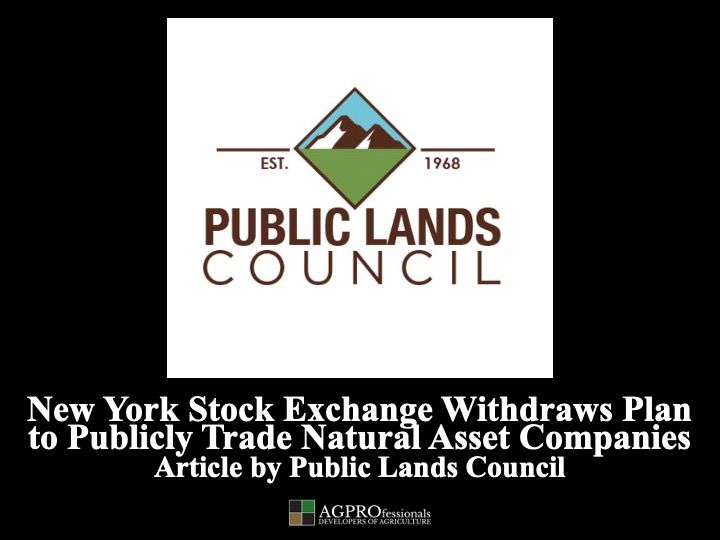On Wednesday, the New York Stock Exchange (NYSE) withdrew their proposal to create a new type of publicly traded corporation called a natural asset company (NAC).
Why does this matter? Under the formerly proposed rule, an NAC would be a corporation that holds the rights to the ecological performance of a specific area of land. These rights would be licensed, much like water rights, mineral rights, etc. An NAC would have to license the rights from a private landowner or sovereign nation (either the U.S. federal government, Tribal government, or foreign nation.) The proposal garnered significant criticism due to its potential to reduce or remove industries like grazing from public lands.
The NYSE's reversal followed several weeks of pushback from congressional Republicans, the livestock industry, Western energy and other multiple-use stakeholders, and private property rights advocacy groups. PLC joined NCBA on comments in opposition to the rule earlier this month. 25 Republican state attorneys argued in a letter to the SEC that the proposal did not abide by financial laws. House Natural Resources Chair Bruce Westerman stated that the decision to withdraw the rule was a “sigh of relief.”
What comes next? It is worth noting that the proposal was pulled by the NYSE itself; Intrinsic Exchange Group (IEG), the original architects of the NAC, are still interested in bringing this product to market. In a quote to press, the chair of the group stated, “We can't control what happens on public lands, and private landowners, it's totally voluntary if they wanted to become part of a NAC.” PLC will continue to oppose any effort that creates a backchannel for removing grazing from federal lands.

